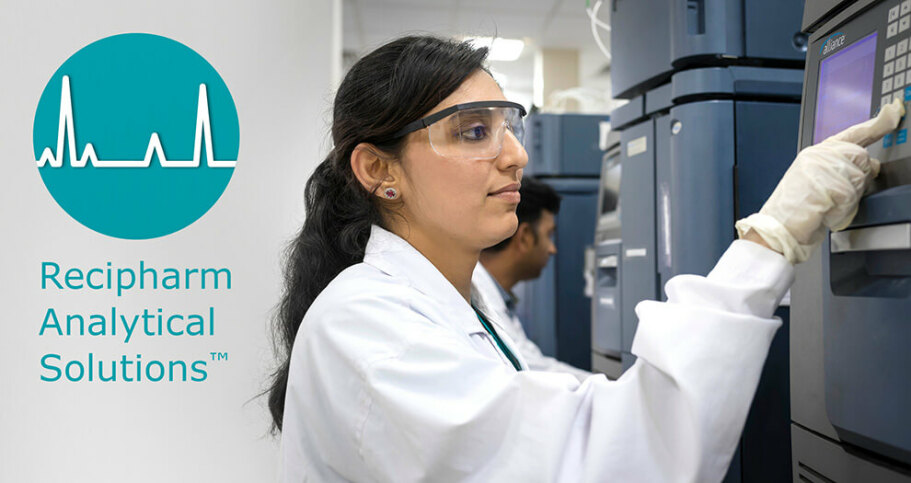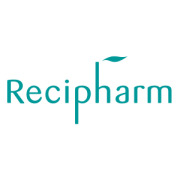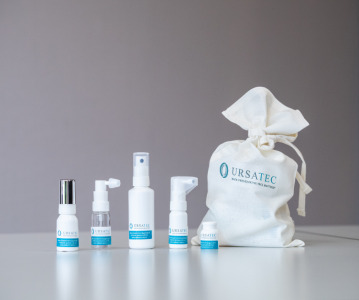Key considerations to develop effective analytical methods for your drug project

A summary exploring Recipharm’s key considerations when it comes to developing effective analytical methods for drug projects.
The formulation development process for any new drug candidate is complex and challenging. In order for the project to be successful, it’s important to be confident that the formulation is performing as intended, is safe for patients to use and offers the stability to provide consistent performance throughout its advertised shelf life. This requires comprehensive testing and analysis.
However, no two drug formulations are alike – each one has its own unique features. This means that pharmaceutical companies need to devise dedicated analytical methods for each new project – all while ensuring they provide the accuracy required. Here are the top three considerations from Recipharm Analytical Solutions™ for developing effective analytical methods for a drug formulation development project.
- Define the quality target product profile (QTPP) at the very beginning
This needs to be done as early on in the project as possible to ensure the analytical methods are truly able to control the quality of the final product. Failure to do this will result in unnecessary delays, which extend development timelines. An ideal QTPP will include a list of quality attributes (QAs) that are required of the finished product to ensure optimum product performance and patient safety. These can then be used to develop effective and rapid analytical methods to test that the product meets these QAs.
- Remember to test both API and excipient together from the outset
All drug products are the combination of API and inactive excipients, and the performance and quality of the finished treatment will depend on how these ingredients work together. Appropriate compatibility studies must be performed on both API and excipient together in order to fully understand their performance. These studies should include: particle size distribution for drug substance; differential scanning calorimetry; thermogravimetric analysis; related substance profile; polymorphic form selection; and x-ray diffraction (XRD).
- Testing shouldn’t end at the formulation stage
The stability and shelf-life of the finished drug product have a key impact on its effectiveness, as well as patient safety, so it is also vital to carry out rigorous testing on any finished dosage form. The specificity of the testing method should be well established, and International Council for Harmonisation of Technical Requirements for Pharmaceuticals for Human Use (ICH) guidelines should be used to ensure reporting, identification and quantification thresholds are met.
Expert support is vital
Analysis and testing play a vital role in any drug product development. Done well, they can not only ensure product quality and safety, but also minimise time-to-market and maximise the value of the product throughout its life cycle. Developing effective testing methods requires an expert team who are experienced in devising testing solutions tailor-made to the specific needs of a project.
Outsourcing to companies like Recipharm Analytical Solutions™ can provide access to this expertise. Our expert team has experience from developing hundreds of analytical methods every year, supporting development of formulations ranging from powder in capsules and IV solutions to ER tablets and dry powder inhalers.
Working with such a partner, companies can be confident they have the tools and methods to fully understand their product, so they can continue to delivery high-quality and safe therapies to patients.

Related News
-
Sponsored Content Ashwagandha and Herbal Medicines: Pharma’s Next Big Opportunity
Herbal medicines and nutraceuticals have seen a surge in interest since the onset of the COVID-19 pandemic. Driven by patient interest in prioritising personalised and integrative medicines, the herbal ingredients industry is now faced with concerns pe... -
Sponsored Content Discover Our Organic Mineral Salts as APIs
Discover the range of organic mineral salts that serve as Active Pharmaceutical Ingredients available from Dr. Paul Lohmann®. -
Sponsored Content CPHI Podcast Series: Ursatec – celebrating 30 years of pioneering preservative free
In the latest episode of the CPHI Podcast Series, Digital Editor Lucy Chard spoke with Dominik Rocchi of Ursatec. -
Sponsored Content How healthcare trends inform dosage forms
Capsules encompass one of the most popular solid oral dosage forms for pharmaceutical products, with the global empty capsule market predicted to rise to USD $3.7 billion by 2026. The growth in the capsule market can be partly attributed to the many op... -
Sponsored Content 2023 Pharma Trend Outlook: Innovation, Resilience, and Pharma 4.0
Download our 2023 Pharma Trends Outlook report to discover the trends set to shape the pharmaceutical landscape in the new year, with expert opinions and insight from across the pharmaceutical value chain. -
Sponsored Content CPHI Podcast Series: Key Considerations in Selecting the Right CMO Partner
In this month's episode we hear from Jayna Blake, Senior Project Manager for Technical Programs at Baxter BioPharma Solutions, on key considerations for successful CMO selection. -
Sponsored Content Size doesn’t matter: How smaller deals are shaping healthcare M&A
Several mega-deals have made a splash in the pharma and life sciences industries over recent years – from AstraZeneca’s acquisition of Alexion for $39 billion to Gilead Sciences’ $21 billion purchase of Immunomedics. With am... -
Sponsored Content Rise in home-based healthcare shaping pharma packaging and drug delivery
The pharma packaging and drug delivery industry has long been synonymous with rapid innovation. As medicine advances and patient needs change, so too should drug packaging and devices. This has been particularly evident during the pandem...
Position your company at the heart of the global Pharma industry with a CPHI Online membership
-
Your products and solutions visible to thousands of visitors within the largest Pharma marketplace
-
Generate high-quality, engaged leads for your business, all year round
-
Promote your business as the industry’s thought-leader by hosting your reports, brochures and videos within your profile
-
Your company’s profile boosted at all participating CPHI events
-
An easy-to-use platform with a detailed dashboard showing your leads and performance
.png)






